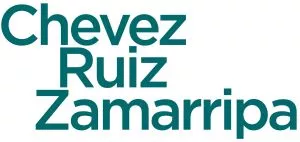On February 21, 2025, the Decree amending, supplementing, and repealing various provisions of the Law of the National Workers' Housing Fund Institute and the Federal Labor Law, regarding socially oriented housing, was published in the Official Gazette of the Federation. Said Decree entered into force on the day following its publication.
In this communication, we inform you of the modifications we consider most relevant. However, we recommend reviewing the publication in detail to promptly identify any other matters that may be of interest to you.
Law of the National Workers' Housing Fund Institute (INFONAVIT per its acronyms in Spanish)
This reform aligns with the most recent constitutional amendments concerning housing and primarily aims to provide access to adequate housing for low-income workers. It introduces a new figure of social leasing, allowing the Institute to construct housing through a subsidiary company created for this purpose.
Social Leasing
This concept is introduced as a means for workers to access adequate housing.
Upon completing one year of continuous contributions, eligible workers may participate in the social leasing program for housing constructed or managed by INFONAVIT and in the purchase option programs for such housing.
The balance of the worker's housing subaccount shall serve as a guarantee for payment compliance.
Social leasing contracts must include a clause recognizing the worker's right to exercise the purchase option for the housing, provided they have the necessary savings or financial resources. Additionally, rental payments may be credited toward the final purchase price.
Workers shall be obligated to pay rent, which shall be deducted from their wages in accordance with the Federal Labor Law, as detailed below.
Deductions for Absences or Disabilities
A noteworthy amendment establishes that, in the case of deductions applied to loan repayments granted by INFONAVIT, the obligation to make such deductions shall not be suspended due to absences or disabilities, in accordance with the provisions of the Social Security Law.
Prior to the reform, this obligation was suspended when no salary payment was made due to absences, in accordance with the Social Security Law. In the case of disabilities, before this reform, the obligation to make and remit deductions was suspended, except when the employer had entered into an indirect payment and subsidy reimbursement agreement with the Mexican Social Security Institute (IMSS per its acronyms in Spanish).
This new provision could be unconstitutional due to the nature of the deductions.
Additionally, this new obligation represents a challenge for employers regarding the calculation and payment for the first two-month period of 2025, given that the reform takes effect as of February 22, 2025, without any clear transitional rule for its application. This implies that it should be enforced starting on that date.
Regarding contributions, the obligation to make them remains in place for disabilities certified by the IMSS. However, contributions shall be suspended when salaries are not paid due to absences, in accordance with the Social Security Law, provided that timely notice is given to the Institute, as was the case before the reform.
Federal Labor Law
In line with the reforms to the INFONAVIT Law, provisions regarding salary deductions have been amended.
For minimum wages, deductions for loan repayments or rent payments under the INFONAVIT social leasing program will be permitted, provided that they are freely accepted by the worker and do not exceed 20% of the salary for loans and 30% of the salary for rent payments.
For wages above the minimum, deductions for loan repayments or rent payments under the INFONAVIT social leasing program will be permitted, maintaining the condition that they must be freely accepted by the worker.
Criterion on Article 29 of the INFONAVIT Law
Regarding the previous reform, on March 13, 2025, the National Workers' Housing Fund Institute (INFONAVIT) published on its official website a "Criterion on Article 29 of the INFONAVIT Law", related to the reform published in the Official Gazette of the Federation on February 21, 2025, which modified, among other provisions, the second-to-last paragraph of Article 29 of the INFONAVIT Law.
According to the statement published by INFONAVIT, "employers must modify the calculation of the amount to be deducted from their employees' wages for the payment of installments covering loans granted by the Institute, as provided in Section III of the same article (29), to ensure that the amount of the deduction indicated in the 'NOTICE FOR RETENTION OF DISCOUNTS' is not reduced when expressed in 'PESOS' or 'FIXED QUOTA IN VSM,' in proportion to the days for which salaries were not paid due to absences or disabilities. In such cases, the amount to be deducted must match the amount indicated in the referenced notice."
To this end, the statement specifies that "under no circumstances shall the employer deduct more than the salary paid to the employee or, where applicable, the amount resulting from the provisions of Article 97 of the Federal Labor Law. The employer has no obligation regarding the amount that could not be deducted in these cases."
Finally, regarding the effective date of the second-to-last paragraph of Article 29 of the INFONAVIT Law, the statement mentions that INFONAVIT is currently "in the process of determining a timeframe to allow employers to properly implement it."
Beyond the validity of this "criterion", it is unclear and does not provide certainty about the scope of the reform to the provision in question.
It is worth noting that, according to the decree that introduced
the reform to the second-to-last paragraph of Article 29 of the
INFONAVIT Law, this provision came into effect the day after its
publication in the Official Gazette of the Federation,
meaning February 22, 2025.
We recommend reviewing the publication individually to identify any other relevant issues not covered in this Flash Report.
The content of this article is intended to provide a general guide to the subject matter. Specialist advice should be sought about your specific circumstances.


